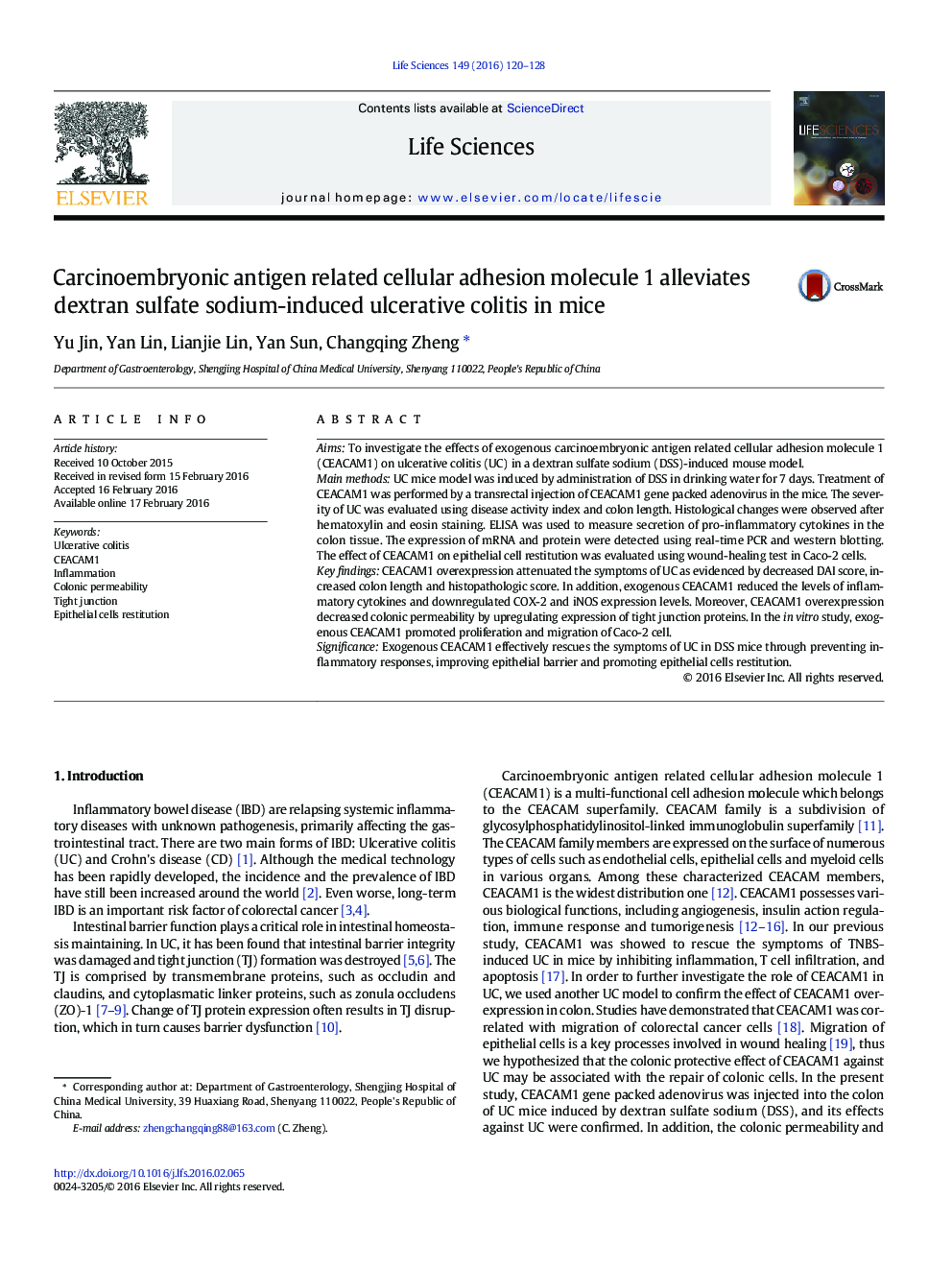| Article ID | Journal | Published Year | Pages | File Type |
|---|---|---|---|---|
| 2550646 | Life Sciences | 2016 | 9 Pages |
AimsTo investigate the effects of exogenous carcinoembryonic antigen related cellular adhesion molecule 1 (CEACAM1) on ulcerative colitis (UC) in a dextran sulfate sodium (DSS)-induced mouse model.Main methodsUC mice model was induced by administration of DSS in drinking water for 7 days. Treatment of CEACAM1 was performed by a transrectal injection of CEACAM1 gene packed adenovirus in the mice. The severity of UC was evaluated using disease activity index and colon length. Histological changes were observed after hematoxylin and eosin staining. ELISA was used to measure secretion of pro-inflammatory cytokines in the colon tissue. The expression of mRNA and protein were detected using real-time PCR and western blotting. The effect of CEACAM1 on epithelial cell restitution was evaluated using wound-healing test in Caco-2 cells.Key findingsCEACAM1 overexpression attenuated the symptoms of UC as evidenced by decreased DAI score, increased colon length and histopathologic score. In addition, exogenous CEACAM1 reduced the levels of inflammatory cytokines and downregulated COX-2 and iNOS expression levels. Moreover, CEACAM1 overexpression decreased colonic permeability by upregulating expression of tight junction proteins. In the in vitro study, exogenous CEACAM1 promoted proliferation and migration of Caco-2 cell.SignificanceExogenous CEACAM1 effectively rescues the symptoms of UC in DSS mice through preventing inflammatory responses, improving epithelial barrier and promoting epithelial cells restitution.
